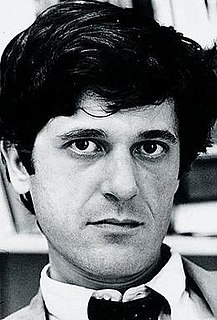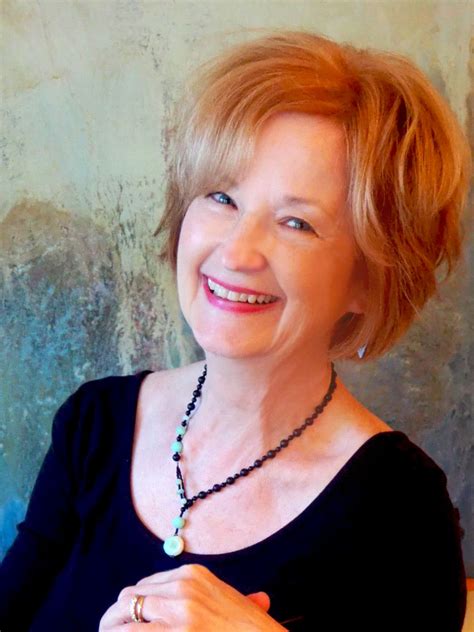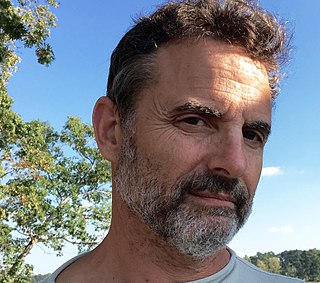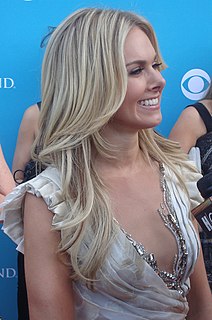A Quote by Rachel Maddow
If everybody can author their own story, if media is democratizing because everybody can make a really good-looking website... that's the way we learn now instead of in books. It means that more people get to tell their own story in their own terms rather than having to go through publishers and editors and executives.
Related Quotes
I was interested in the ways we can write biography. When you're first starting to write about your own life it feels so shapeless because you don't know how to make your own story cohesive. How do I pluck a story out of the entirety of what it means to be alive. It occurred to me recently that when you're telling a story about your own life, rather than taking a chunk, you're kinda like lifting a thread from a loom.
Media gatekeepers - editors, publishers, film studios and the like - need to begin investing in talent behind the scenes, developing and resourcing marginalized voices to tell their own stories. At the end of the day, it's about the story and what will enable the audience to truly see, understand, and know the life and times of the subject.
Sometimes language gets in the way of the story's feelings. The reader finds himself experiencing the language of the story rather than the story. The words sit there on the page like coins, with their own opacity, as though they're there for their own sake. "A man goes into a phone booth, stirring coins in his palm." "Stirring" is such an obviously selected word. You can feel the writer looking for the word as he sat at the typewriter.
Be skeptical, but not as a social position, not claiming to be so intelligent that you cannot believe what other people say. It's not about being right and making everybody else wrong. No, you are skeptical because you know without a doubt that everybody lives in their own story, and in their story they have their own truth. But it's only truth in their mind, just as your truth is only truth in your mind, and nobody else's.
Vera said: 'Why do you feel you have to turn everything into a story?' So I told her why: Because if I tell the story, I control the version. Because if I tell the story, I can make you laugh, and I would rather have you laugh at me than feel sorry for me. Because if I tell the story, it doesn't hurt as much. Because if I tell the story, I can get on with it.
The best time to tell your story is when you have to tell your story. When it's not really a choice. But then, when you get that first, messy, complicated version down, you have to read it over and be very tough on yourself and ask, 'Well what's the story here?' If you're lucky enough to have someone you trust looking over your shoulder, he or she can help you if [you] lack perspective on your own story.
How to avoid cliche at the root of conception? Practice sincerity. If we've come by ... material honestly, through our own personal experience or imagination, we may rightly claim it as our own. ... The way to make material your own is to look for it in yourself. ... It should be a story that only you can tell, as only you can tell it.
The positive thing about collaborating is that I cannot get distracted by coding work, because I cannot waste the other collaborator's time in the same way as I can my own. And it's always good to learn how the other person works, learn about techniques, learn social things like: how do you communicate with another person? The music I make with other people I'm much more confident about, I'm a little bit less judgemental of the outcome than with my own stuff because I know it's not only me, it's a more outside of me. Sometimes I even like them better than my own tracks.
I think I just do what I feel is good to do. Everybody can give me their suggestions, but at the end, the final risk is mine because it's my name on the magazine. So I only do what I really feel. Everybody tries to influence you, of course: "Oh, this is the right moment to do this" and "This is the right photographer to choose," and "This is the right model to have . . ." I listen, but I must go my own way. When you take risks, it means that you know every month people are there to judge you.
A good story isn't the one that shuts everyone down and sort of leaves them in silent awe. A good story is one that, even before you finish the anecdote, you can see their eyes shining because it has so resonated with something from their own lives that everyone in the group has a version of the same story and they cannot wait to tell it, and that they're going to compete to make their version even more extreme than your version. So your version is just a seed.

































